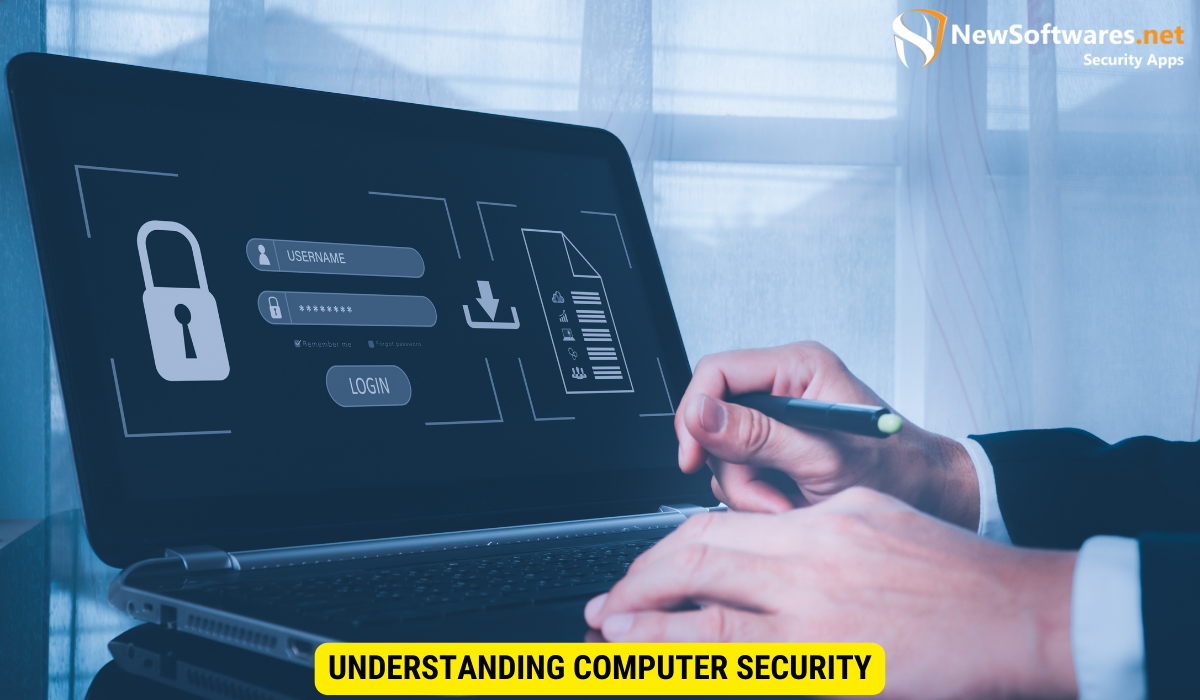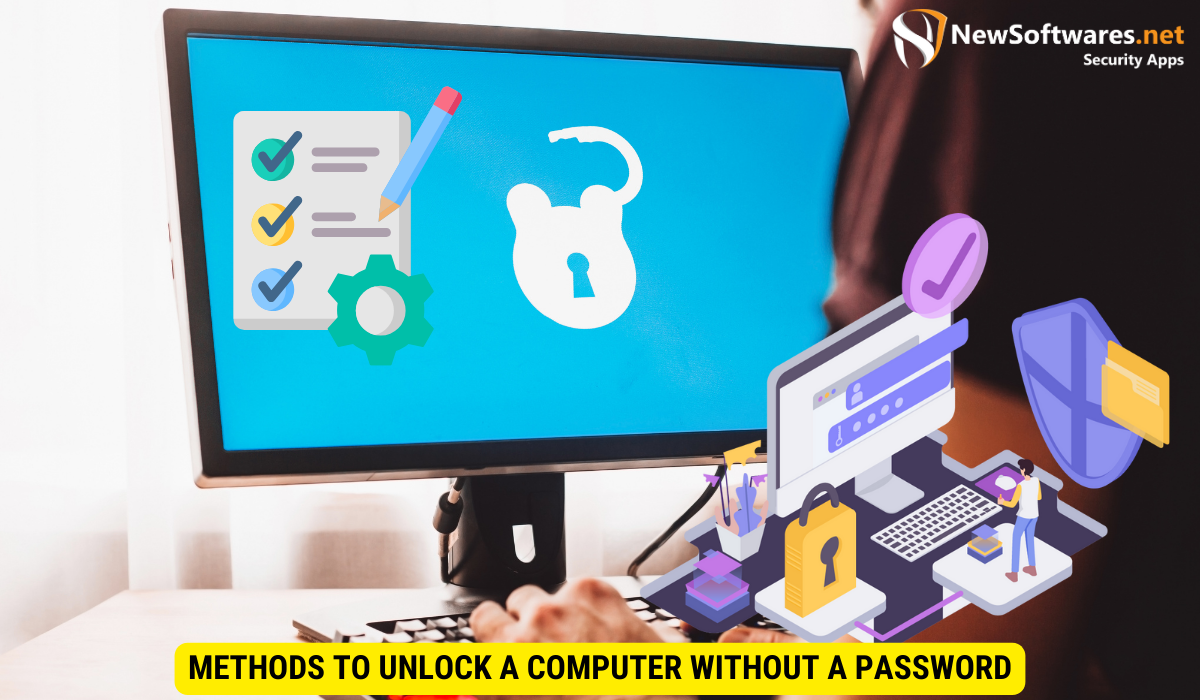To open a locked computer without a password, you can use safe mode, a password reset disk, or third-party software designed for password recovery. Ensure you follow legal and ethical guidelines when accessing the computer.
In today’s digital age, computer security is of utmost importance. We store a vast amount of personal and sensitive information on our computers, making it crucial to protect them from unauthorized access. However, what happens if you find yourself locked out of your computer with no password? Don’t panic just yet! I will guide you through the process of opening a locked computer without a password, while also addressing the legal and ethical considerations that come with it.
Understanding Computer Security

Before we delve into the methods of bypassing a computer password, it is essential to have a basic understanding of computer security. Computers are equipped with various security measures to safeguard your data, with one of the most common being computer locks. These locks can be in the form of passwords, PINs, or even biometric scans, making it challenging to gain access without the correct credentials.
The password, in particular, plays a crucial role in ensuring computer security. It acts as a barrier between unauthorized users and your personal data. However, situations may arise where you forget your password or find yourself locked out due to other circumstances.
The Basics of Computer Locks
Computer locks are designed to prevent unauthorized access to your device. They often involve the use of a password, PIN, or pattern that needs to be entered correctly before gaining access to the computer. Additionally, more advanced locks may include biometric features such as fingerprint or facial recognition. These security measures work together to protect your computer and the data it contains from falling into the wrong hands.
Importance of Passwords in Computer Security
Passwords are the most common form of computer locks. They act as the first line of defense against unauthorized access. Strong passwords are essential to maintaining computer security. A strong password typically consists of a combination of uppercase and lowercase letters, numbers, and special characters. Having a secure password ensures that only authorized individuals can gain entry into the computer, minimizing the risk of data breaches and privacy violations.
While passwords are crucial for computer security, it is important to note that they are not foolproof. Hackers and cybercriminals are constantly developing new techniques to bypass passwords and gain unauthorized access to computers. This is why it is essential to stay updated with the latest security practices and be aware of potential vulnerabilities.
One way to enhance computer security is through two-factor authentication (2FA). This additional layer of security requires users to provide two forms of identification before accessing their computers. For example, in addition to entering a password, users may also need to provide a unique code sent to their mobile devices. This adds an extra level of protection, as even if someone manages to obtain the password, they would still need physical access to the user’s mobile device to gain entry.
Another important aspect of computer security is regular software updates. Software developers frequently release updates to address security vulnerabilities and patch any loopholes that hackers may exploit. By keeping your computer’s operating system and software up to date, you ensure that you have the latest security patches installed, reducing the risk of unauthorized access.
Lastly, it is crucial to be cautious when downloading and installing software from the internet. Malicious software, also known as malware, can be disguised as legitimate programs and can compromise your computer’s security. Always download software from trusted sources and use reputable antivirus software to scan any downloaded files for potential threats.
Legal and Ethical Considerations
When faced with a situation where you are locked out of your computer without a password, it is crucial to consider the legal and ethical implications of bypassing the computer security measures. While gaining access to your own computer may seem harmless, it is important to distinguish between legal and illegal actions.
When is it Legal to Bypass a Computer Password?
There are instances where it may be legal to bypass a computer password. For example, if you have forgotten your password and are attempting to regain access to your own computer, it is generally considered legal. However, it is vital to familiarize yourself with the laws and regulations specific to your jurisdiction, as the legality of bypassing computer passwords may vary.
Ethical Implications of Bypassing Computer Security
While something may be legal, it doesn’t necessarily mean it is ethical. Bypassing computer security measures without proper authorization can be seen as unethical. It is crucial to consider the potential consequences of your actions and respect the privacy of others. If you find yourself locked out of your computer, weigh the ethical implications before resorting to bypassing the password.
Preparations Before Bypassing a Password
Before attempting to bypass a computer password, it is essential to make a few preparations. These steps will help ensure a smooth and successful outcome, while also minimizing the risk of data loss.
Necessary Tools and Software
There are tools and software available that can assist in bypassing computer passwords. Research and find reputable resources that offer legitimate solutions. It is crucial to use trustworthy software to avoid potential malware or security breaches.
Backing Up Important Data
Prior to bypassing the computer password, it is essential to back up any important data stored on the computer. This step is necessary to prevent data loss or corruption during the unlocking process. External hard drives, cloud storage, or USB drives can be used to create a secure backup of your files.
Methods to Unlock a Computer Without a Password

There are various methods available to unlock a computer without a password. Each method has its own requirements and effectiveness, so it is important to choose the one that suits your situation best.
Using Password Reset Disk
If you have previously created a password reset disk, this method can be used to regain access to your computer. A password reset disk is a removable storage device, such as a USB drive, that contains the necessary information to reset your password. This method is effective if you have prepared a password reset disk before being locked out.
Utilizing Safe Mode
Safe Mode is a built-in feature in Windows operating systems that allows you to start your computer with minimal drivers and services. By accessing Safe Mode, you can bypass certain security measures and gain entry into your computer. This method is suitable if you are unable to reset your password using other means.
Employing Third-Party Software
There are reputable third-party software programs available that specialize in bypassing computer passwords. These programs utilize advanced algorithms to reset or remove the password, granting you access to your computer. It is essential to research and choose reputable software to ensure the integrity of your computer’s security.
Post-Unlocking Steps
Once you have successfully unlocked your computer without a password, it is important to take a few additional steps to secure your device and prevent future issues.
Setting Up a New Password
After gaining access to your computer, it is crucial to set up a new password immediately. Choose a strong and unique password that is easy for you to remember but difficult for others to guess. Regularly updating your password enhances computer security and helps protect your data.
Enhancing Your Computer’s Security
Bypassing a computer password should only be a temporary solution. It is important to take additional measures to enhance your computer’s security. This may include installing antivirus software, enabling a firewall, and keeping your operating system up to date with the latest security patches. Regularly backing up your data is also essential to protect against unforeseen events.
Key Takeaways
- Computer security is crucial in protecting your personal and sensitive information.
- When bypassing a computer password, consider the legal and ethical implications, as laws may vary.
- Make necessary preparations, such as backing up data, before attempting to bypass a password.
- Methods to unlock a computer without a password include using a password reset disk, utilizing Safe Mode, and employing third-party software.
- After successful unlocking, set up a new password and enhance your computer’s security measures.
FAQs
Is it illegal to bypass a computer password?
The legality of bypassing a computer password may vary depending on your jurisdiction. It is important to familiarize yourself with the laws specific to your area.
Can I bypass a computer password without any tools?
While there are methods that do not require specialized tools, such as utilizing Safe Mode, having the necessary tools and software can increase your chances of successfully bypassing a computer password.
What should I do if I forget my computer password?
If you forget your computer password, you can try using a password reset disk if you have one. Alternatively, there are methods available, such as utilizing Safe Mode or third-party software, to regain access to your computer.
How often should I change my computer password?
It is generally recommended to change your computer password regularly, ideally every three to six months. This practice enhances computer security and reduces the risk of unauthorized access.
Can I prevent getting locked out of my computer?
To prevent getting locked out of your computer, it is important to establish a strong and memorable password, keep your login information secure, and regularly back up your data.
Conclusion
Gaining access to a locked computer without a password can be a stressful situation, but it is not an impossible task. By understanding computer security, considering legal and ethical implications, and following the appropriate methods, you can regain access to your computer while maintaining the security of your data. Remember to prioritize ethical considerations and ensure that you are complying with the laws of your jurisdiction. With the right approach, you can successfully unlock your computer without a password and safeguard your personal information.
